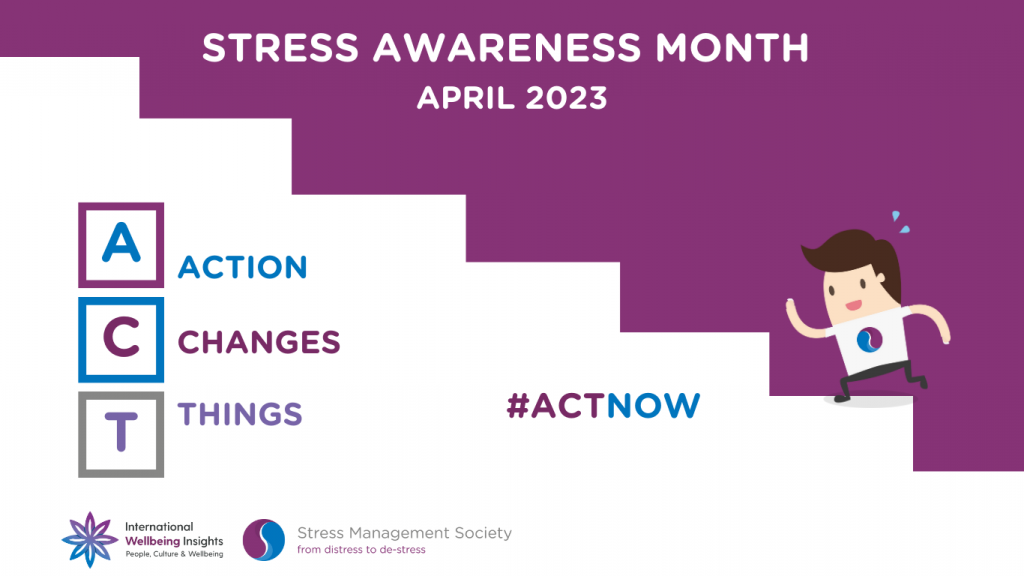Stress and poor mental health are the biggest public health challenges that we’re facing but despite this, we are still not taking its impact seriously enough.
There is sometimes confusion between stress and pressure. It is healthy for staff to have challenges to meet and, while challenges produce pressure, pressure can have a beneficial effect in improving performance and job satisfaction.
But…
Too much pressure can result in stress and be harmful to health. Similarly, unhappy relationships with managers, colleagues or clients and undertaking an unsuitable job can result in stress which may, in turn, lead to ill health.
The World Health Organisation (WHO) notes that:
- Stress occurs in a wide range of work circumstances but is often made worse when employees feel they have little support from managers and colleagues, as well as little control over work processes.
- There is often confusion between pressure or challenge and stress and sometimes it is used to excuse bad management practice.
In May 2019, the WHO announced that burn-out was to be included in the International Classification of Diseases as an occupational phenomenon (which is a factor that influences health status or contact with health services, but which is not a medical condition). It suggests that burn-out is a result of chronic workplace stress that has not been successfully managed and which is characterised by an employee experiencing all of the following:
- Feelings of energy depletion or exhaustion.
- Increased mental distance from their job, or feelings of negativism or cynicism related to their job.
- Reduced professional efficacy.
It can be difficult to identify employees who are under stress, particularly when you might not be aware of external factors such as relationship breakdowns, financial worries or bereavements. These can all lead to stress, or they can compound pressure at work and result in stress.
A person who is suffering from work-related stress or mental ill health may be “disabled” for the purposes of the Equality Act 2010 and employers needs to bear in mind the consequences of an employee being protected by the Equality Act.
By taking steps to manage stress and mental wellbeing at work, you may be able to avoid an employee developing a mental impairment or, where an employee has or develops an impairment, you can ensure you meet your obligations (for example, by making reasonable adjustments).
The Health and Safety Executive, CIPD and the Trades Union Congress have all produced guides to help. These can be found on the respective websites.
Employers should actively raise awareness of mental health. This encourages individuals to care for themselves and to help provide support for others. As the Acas Guide notes, an employer that understands mental health is better able to support and encourage employees to be open about their mental health. To fully understand mental health, the Acas Guide notes consider that employers should:
- Recognise what mental health is and what mental ill health means.
- Identify causes of mental ill health in the workplace.
- Recognise the stigma associated with mental ill health and consider how this can be removed from its workplace.
- Know its legal obligations to staff.
Employees, and at least all managers, should be trained to understand mental health issues. Who can provide that training will depend on whether senior managers or HR have themselves received appropriate training. It may be appropriate to use a qualified external trainer.
This year’s theme is #ActNow as Action Changes Things. It is a campaign to take action and personal responsibility to create positive change, and do something to make you feel better.
The Stress Management Society have launched a 30 Day Challenge for April, and it’s not too late to join in. They are encouraging us all to pick one action each for our Physical, Mental and Emotional Wellbeing to carry out every day.
They have chosen a 30 day challenge because, according to them, it takes 30 days to turn actions into habits. They say that the 30-day challenge will maximise your chances of turning useful knowledge and techniques into positive behavioural change. So, even if you haven’t started yet, you can still ACT Now and begin today, for 30 days.
You can access their free resources, such as the 30 Day Challenge, a Daily De-Stressing Planner, a Stress Guide, 7 Steps Achievement Plan, useful infographics on stress and much more, here.
Stress is our body’s natural response to dealing with pressure. But too much stress, over a long period of time can have a negative impact on performance at work.
Stress is one of the most common causes of long-term sickness absence in the UK. Supporting employees who are feeling stressed can help you understand what’s making them feel that way and allow you to offer some guidance. Practical steps can then be taken to address this and help them feel more positive and productive at work.
What do you do to help and support your employees?
Do you have, and actively implement, a stress and mental wellbeing at work policy?
A policy sets out your understanding of work-related stress and mental health, your commitment to identifying and eradicating sources of work-related stress and to providing a working environment which supports mental wellbeing.
If you’d like more information on how we can help you and/or draft a stress and mental wellbeing at work policy for you, you can reach us on:
? hello@peachlaw.co.uk
? Connect with us on LinkedIn – Peach Law (HR & Employment Law Specialists)
? 0161 478 3800


